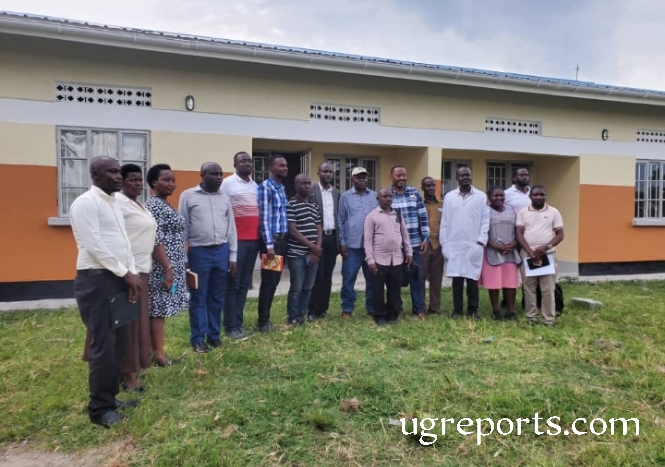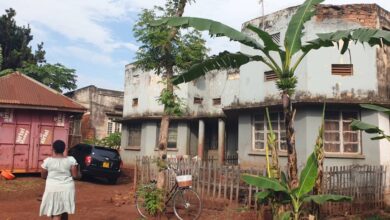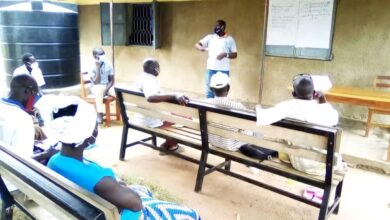Ntoroko district faces growing concern over rising infant mortality
The district health authorities have identified several factors contributing to this issue.

By Victor Kukundakwe
Ntoroko: Infant mortality is a growing concern for Ntoroko district authorities as they grapple with a population of over 84,000 people, with 16,584 women in the childbearing age range of 15–49 years.
The district is equipped with 12 government health facilities, but this number is insufficient to meet the healthcare needs of the local population. Additionally, six privately owned facilities help bridge the gap to some extent.
From 2019 to 2023, Ntoroko district has witnessed a troubling increase in infant mortality cases. The figures are as follows: from July 2019 to June 2020, 22 cases were reported, followed by 40 cases from July 2020 to 2021, 47 cases from July 2022 to June 2023, and 49 cases from July 2022 to June 2023.
The district health authorities have identified several factors contributing to this issue.
The leading cause of infant mortality in the district is the inadequate number of health facilities. Some facilities lack essential medicines, and the challenging mountainous terrain further complicates healthcare access.
Expectant mothers often have to undertake long journeys to access better healthcare services, especially those residing in remote areas with poor road networks.
Badaki Richard, the assistant District Health Officer (DHO) of Ntoroko, highlighted that pregnant women are sometimes compelled to travel long distances due to a lack of awareness about available antenatal care (ANC) services and poor birth preparedness.
Some women continue to rely on traditional birth attendants, and the absence of medicines in local hospitals further deters them from seeking timely medical assistance.
Dr. Ssekanabo Nimron, the head of Karugutu District Health Center IV, revealed that their facility receives around 133 to 135 live births, but unfortunately, 2 to 5 infants die due to delays in seeking medical help.
He emphasized that the root causes of infant mortality include malaria in pregnant mothers, anemia resulting from inadequate nutrition, and other infections.
Furthermore, the lack of awareness about ANC services, poor transportation due to the district’s rugged terrain, and financial constraints contribute to the problem.
“Some of our mothers from Kyamutema village, situated in the remote and mountainous Rwenzori region towards Bundibugyo district, face considerable challenges. The village is located approximately 35 kilometers from the healthcare facilities, and the road network in this area is in a state of disrepair. As a result, these mothers regularly encounter significant difficulties when attempting to reach the necessary medical facilities,” he said.
To address these challenges, Dr. Nimron mentioned that they have intensified health education during antenatal care services and conducted community outreaches.
He said the district owns 21 village motorcycles and ambulances for outreach efforts, although some are currently not operational.
Dr. Rude Wilson, the District Health Officer of Ntoroko, acknowledged that despite the district’s ongoing increase in cases of infant mortality, there are functional theaters at Karugutu and Rwebisengo Health Center IVs.
He mentioned that other healthcare facilities that do not have theater services have established high-risk clinics for mothers who can have normal deliveries.
These clinics come into play when mothers are identified as needing theater services. In addition, the facilities provide neonatal intensive care unit services, offering specialized care to babies born with complications.
The district has also initiated food demonstration gardens, provided iron supplements and folic acid, and offered treatments for prevention. Additionally, six food demonstration gardens have been set up to educate pregnant mothers on proper nutrition and cooking practices.
Ntoroko district comprises 10 administrative units, including 6 sub-counties and 4 town councils. Notably, three of these units lack health facilities, specifically Rwebisengo sub-county, Karugutu sub-county, and Kibuuku town council.
To combat infant mortality, the district has employed over 34 midwives and introduced integrated community case management for children under five years.
Village Health Teams (VHTs) provide early health services to newborns, reaching around 2,000 out of 4,000 children.
“This initiative was implemented to ensure that children can access healthcare services shortly after birth to reduce infant mortality. Thanks to these services, nearly 2,000 out of 4,000 children are now receiving essential healthcare right in their homes,” He said.
In partnership with Save the Children, the district introduced motorcycle rider ambulances to transport pregnant mothers to nearby facilities, benefiting areas like Nombe and Rwebisengo due to their challenging road conditions.

Interventions
A voucher system has been implemented, contracting Boda Bodas (motorcycle taxis) to transport pregnant women to facilities, particularly in the Karugutu Sub-county and Bweramule Sub-county.
Health workers also conduct integrated community outreach programs, tracing pregnant mothers in need of medical attention, especially in mountainous areas like Katwakali and Kakwankumu.
In the last quarter of the financial year, around 30 pregnant mothers have received medical assistance and referrals, with some returning home in improved health.
To further address this pressing issue, the district health department is requesting support from UNHCR/MTI for the placement of ambulances at Ntoroko Health Center IIIs to aid in emergency referrals.
Additionally, there is a need to construct public Health Center IIIs in the three lower local governments without public health facilities, providing standby ambulances to enhance emergency case referrals from Kanara Town Council.
Adequate fuel and maintenance for district ambulances and DHO vehicles are also critical to ensuring a timely and effective response to healthcare emergencies in the region.
Do you have a story about your community or an opinion to share with us? Email us at theugreports@gmail.com.






